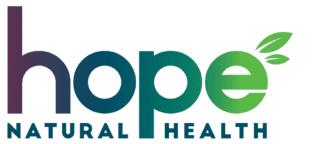Fact #1: 60% of the human brain is fat
Ever think about what happens to fats from your diet once you eat them? They become building blocks for things like cellular membranes, nerve cells, and brain matter! That means eating healthy fats is one of the best things you can do for your brain.
Fact #2: Sleep removes toxins from the brain
The brain actually has a self-cleansing mechanism that creates waves of fluid to clear metabolic waste. These waves are most active during sleep, so you can think of sleep as a form of detox for the brain.
Fact #3: Gut microbes signal the brain and affect behavior
The gut-brain axis is a two-way communication network between the gut and the brain that is largely influenced by the gut microbiome. Studies have even linked specific probiotics to stress and mood.
Healthy brain function depends on a steady supply of essential fats (for nerve cell communication), proteins (for neurotransmitter synthesis), micronutrients (for metabolic pathways), and polyphenols (for antioxidant protection).
Foods To Eat & Foods To Avoid
Here are science-backed foods to eat and to avoid for a better brain
✅ Good Foods
- Eggs
- Fatty Fish
- Flax Seeds
- Chia Seeds
- Walnuts
- Olives
- Turmeric
- Green Tea
- Dark Chocolate
- Mushrooms
❌ Bad Foods:
- Trans fats (hydrogenated oils)
- Alcohol
- Sugary Drinks
- Refined Carbohydrates
- Aspartame
Even if you don’t think you have any problems with “brain health,” just remember that your brain is the control center for every other body function—including energy, sleep, stress, hormones, and gut health.
5 Nutrients for Brain Health:
1. Omega-3 Fatty Acids
Fatty acids are the building blocks for nerve cell membranes and important for cell-to-cell communication in the brain.
Food sources: fish, nuts, & seeds
2. B Vitamins
B vitamins act as cofactors for energy metabolism, and the brain needs a constant supply of energy to maintain function!
Food sources: eggs, meats, nuts, whole grains
3. Choline
Choline is a building block for acetylcholine, a key neurotransmitter related to memory and brain function.
Food sources: egg yolks & liver
4. Polyphenols
These colorful compounds in plant foods protect brain cells from oxidative stress and damage.
Food sources: berries, chocolate, & green leafy vegetables
5. Probiotics
Probiotics influence brain health through the gut-brain axis, benefiting mood and memory.
Food sources: yogurt, kefir, & kombucha.
If you aren’t eating food sources of these nutrients every day, supplementation is an option and you can find most of these in our supplement store. Just be sure to purchase them from trusted sources. If you have any questions, we can help!

